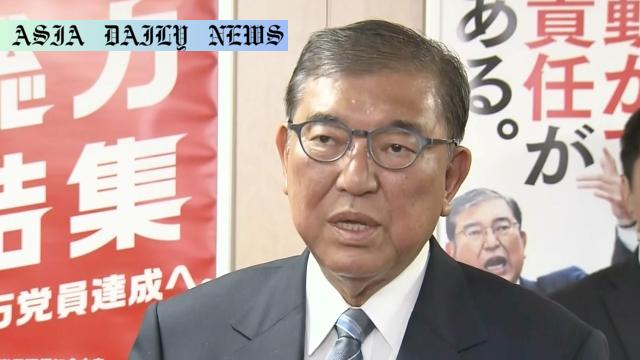Ishiba reiterates determination to stay in office amidst challenges.
Japanese Prime Minister Ishiba Shigeru asserts his decision to stay in office amidst challenges.
Engages in discussions with key LDP leaders to maintain party unity.
Stresses urgency in addressing policy and avoiding a political vacuum.

Ishiba Reiterates Intention to Stay in Office
Despite the ruling coalition’s defeat in Japan’s recent Upper House election, Prime Minister Ishiba Shigeru has firmly reiterated his decision to remain in office. With political stability and policy direction at stake, Ishiba’s leadership comes under heightened scrutiny both domestically and internationally. In his recent public appearance, he addressed the defeat with clarity and signaled a steadfast resolve to address Japan’s challenges.
Prime Minister Ishiba, who has been a significant figure in Japanese politics, spoke to reporters following discussions at the Liberal Democratic Party (LDP) headquarters in Tokyo. Meetings with former Prime Ministers Aso Taro, Suga Yoshihide, and Kishida Fumio highlighted a shared concern over the party’s direction amid mounting political challenges. This collective show of unity underscores the importance of cohesion within the party as it navigates a turbulent political landscape.
Party Unity and a Clear Policy Vision
Ishiba emphatically denied reports suggesting his resignation, stating that his leadership is critical to addressing key policy issues and avoiding a political vacuum. The Prime Minister’s refusal to step down reflects a commitment to not merely hold onto power but to ensure that Japan has the leadership needed in this critical time. For Ishiba, the election setback serves as a rallying call to consolidate support within his party and tackle the nation’s priorities effectively.
Through his analysis, Ishiba emphasized the need for a cohesive, undivided party ready to act decisively on critical challenges, including economic recovery, foreign policy concerns, and ensuring Japan’s leadership strength on the global stage. His current stance seeks to balance acceptance of electoral setbacks while using this as a launching pad to push for reforms and accountability within his ruling bloc.
Actionable Plans: Moving Forward Post-Defeat
The sentiment of a crisis amongst his party colleagues reflects the growing awareness of challenges ahead. However, Ishiba’s leadership is framed around a future-forward strategy, emphasizing proactive measures in addressing domestic and international hurdles. He concluded his statements by reiterating the urgency of stable governance during this time and the inherent risks associated with a fractured political direction.
The Prime Minister’s leadership will be tested in the days to come as he navigates complex policy concerns, effectively communicates a vision, and ensures collective effort from the LDP. In doing so, Ishiba’s focus appears to be clear: resolving challenges to benefit Japan’s broader objectives while maintaining the trust of both the nation’s political leaders and its citizens.



Commentary
Ishiba’s Leadership and the Challenges Ahead
Japanese Prime Minister Ishiba Shigeru’s resolve to remain in leadership despite his ruling coalition’s electoral defeat reveals a lot about his character and political strategy. In an environment where stepping down might seem the easier or more conventional choice, Ishiba’s decision reflects a deep sense of duty and responsibility. This is particularly significant amidst rising challenges, both within the party and in governing the nation effectively during a complex period in Japan’s history.
Ishiba’s leadership style emphasizes unity, which is crucial at a juncture where factionalism poses substantial risks to the LDP’s functionality. Engaging with key party colleagues and former prime ministers highlights the cooperative and team-oriented approach needed to address crises and coordinate strategies. This model of focused collaboration can provide valuable lessons for other political systems globally, showcasing the importance of dialogue over division.
The Importance of Stability in Governance
One significant takeaway from Ishiba’s determined stance is his acknowledgment of the risk posed by a potential political vacuum. This reflects a broader recognition of the need for continuity and responsibility in leadership, especially in times of public uncertainty. Whether it involves major policy challenges like economic recovery post-pandemic or navigating international relations within the shifting dynamics of East Asia, stable governance remains Japan’s foremost requirement. In this regard, Ishiba’s decision to reaffirm his leadership underscores the crucial role of commitment and perseverance in public service.
As the situation unfolds, Ishiba must not only focus on party cohesion but also effectively communicate his vision to the electorate, reaffirming confidence in his capacity to lead through difficulties. In doing so, he has the opportunity to redefine his legacy as a leader who chose to rise above challenges and work towards collective progress despite setbacks.